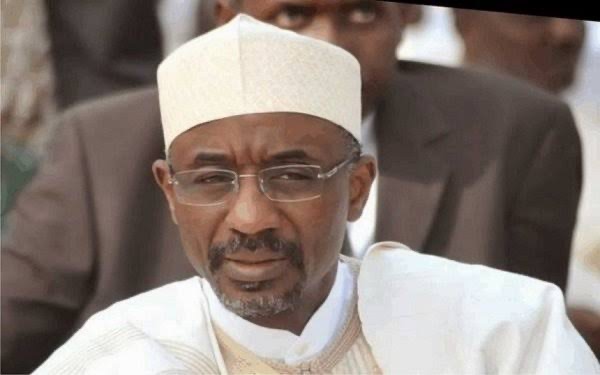A former Emir of Kano, Sanusi Lamido, has said most of those claiming to be fighting for their geopolitical zones are only interested in their pockets.
He noted that they used ethno-religious wars to get into public offices only to serve selfish interests.
Lamido spoke on Thursday at The Platform, an annual conference organised by Covenant Christian Centre in Lagos and hosted by the church’s Senior Pastor, Poju Oyemade.
The Platform is held every October 1 to commemorate Nigeria’s independence.
During the virtual programme, the former Central Bank of Nigeria governor was asked to comment on the ethno-religious crisis in some parts of the country.
He said the issue was not “so much about Nigerians, but the Nigerian elites.”
Sanusi stated, “We do have identities. But the construction of opposing identities is a political process. It’s basically the Nigerian elite competing among itself for a share of the national cake.
“I don’t think that the people, who say they are fighting for the Hausa, Igbo or Yoruba, are really interested. When they get there at the end of the day, it’s about them and their families.
“There is nobody out there that is really representing the North or the South or the East. I mean, they claim to be, but look out there. In the history of Nigeria, there has never been a government that does not have people from all over the country; so, the first thing to recognise is that we must get away from this sense that holding political office is what makes you a representative of the people.”
Sanusi said part of the problems with the country was the pursuance of federal character at the expense of merit and competence.
While drawing a difference between the public and private sectors, Sanusi said there was a need to build strong institutions that would put politicians in check.
He stated, “We should have federal character, but why do we have a minister that can deliver but another that cannot deliver? Why is federal character always pursued at the expense of merit and competence?
“So, until we get out of this almost juvenile obsession with where is this person from, what religion does he practice and actually begin to ask those who want to be President, ministers and governors – what are your credentials? What do you bring to the table? What do you have to offer the people.”
Sanusi, however, commended the Federal Government for removing fuel subsidy, saying it was the right thing to do.
He said the removal was long overdue considering the current economic realities.
The Minister of Works and Housing, Mr Babatunde Fashola, in his remarks at the event, urged Nigerians to focus more on the state and local governments for solutions to their problems, instead of the Federal Government.
Fashola stated, “Some of the most basic things are with them. So, looking for them from the Federal Government perhaps is why we seem to have been disappointed, because we are looking for the result in the wrong place. Waste management, water supply, primary health care, basic education, those are things with the local and state government.
The Federal Government does not own a primary health care centre. In Nigeria, the Federal Government has roughly about 107 secondary schools. I will urge people to go and read the constitution. The powers the President has is about 25, many of them are circumscribed by the National Assembly and judiciary.”







Leave a Reply